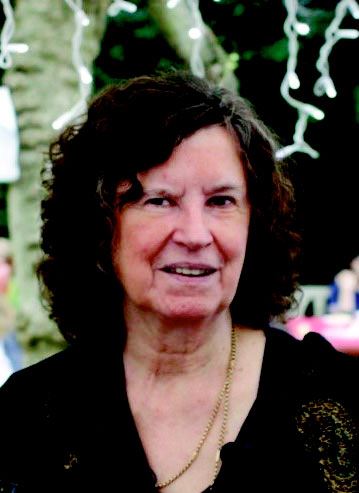Obituary Professor Maria Gilbert (1938-2020)
by Dr. Vanja Orlans

Maria Gilbert died peacefully on Sunday November 29th in London after a long period of illness. Her death marks the departure of a powerful professional woman who made a highly significant contribution to the field of psychological therapy, both in the UK and internationally. Maria was proud of her South African origins. Both of her parents were Afrikaans speaking, which positioned the family significantly both culturally and politically. Growing up in the context of apartheid provided Maria with both interesting and sometimes difficult experiences that she reported as evoking anxieties that could later be triggered in unsafe environments.
Maria’s first degree and related work experiences emerged from her love of literature, leading her to the study of English and an early career in teaching. This would later have a strong influence on how she approached the training of psychological therapists; she was particularly interested in issues of curriculum design and lesson planning, as well as the structuring of written assignments by students and the correct use of the comma. Shakespeare was never far from view and visits to Stratford were frequent.
Maria’s early involvement with the study of psychology brought out her criticality of an impersonal approach that resided in the medical model. While she completed her studies in Clinical Psychology, and later achieved BPS Chartered Status, she gravitated towards approaches to psychological therapy that were based in a more interpersonal approach. Her early therapeutic interests centred on Transactional Analysis, later supplemented by involvement with the Gestalt approach as well as other developing approaches within the clinical field. At the same time, she was able to ground herself in a more traditional psychological approach that favoured a focus on structural diagnoses. These wide-ranging interests and related professional experiences led her to Integrative Psychotherapy.
Maria moved to the UK at the end of 1985 to join with other South African colleagues in what had become the early formational years of the Metanoia Institute in London, an institute that went on to provide a particularly high standard of training for psychologists and psychotherapists. In her early role as a member of the Management Committee of that institute, she was part of a powerful intellectual force that, along with colleagues such as Petruska Clarkson, formulated the beginnings of a highly creative approach to psychological therapy that did not identify with a particular modality. Her publications continue to reach a wide audience internationally. Her self-enjoyed personal style, as defined by both students and colleagues as the ‘Velvet Exocet’ or ‘Attila the Honey’, will be fondly remembered. These qualities kept her on a focused path to deliver a trusted and high level of professional identity to the fields of counselling and psychological therapy.
IAHIP 2021 - INSIDE OUT 93 - Spring 2021

